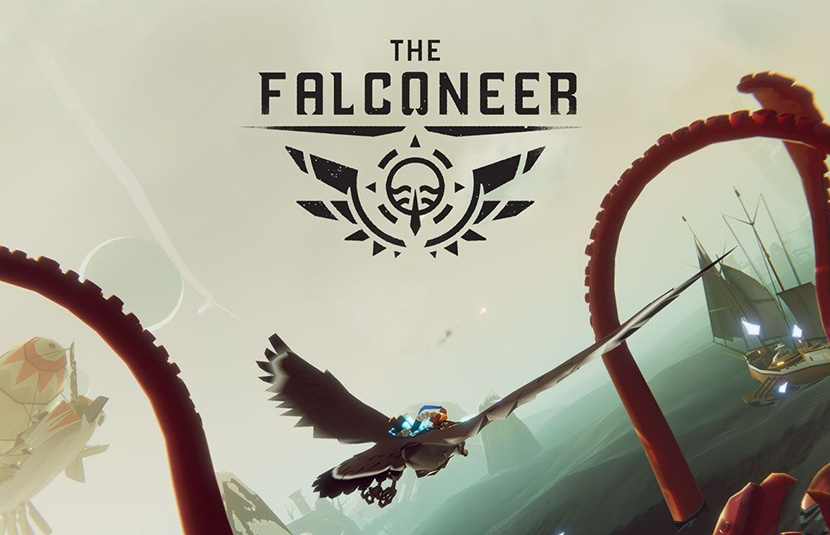
When I first caught a glimpse of The Falconeer at PAX East, I was certainly impressed by what I saw. This beautiful game puts you on the wings of a falcon that you control in flight, exploring and fighting your way through a world filled with wonder and intrigue. Impressively, the title is developed by only a single person – Tomas Sala, a games industry veteran with very ambitious ideas. I only had a limited amount of space on my schedule for PAX, but after getting a chance to play the game and meet with Mr. Sala, I am sure glad I didn’t miss out!
I started out my preview of The Falconeer talking with Tomas as he gave me a rundown of the game and the world contained within it. It’s clear that he is understandably passionate about his creation – he eagerly filled me on the details of his creation and the inspirations behind it. The setting is certainly fantasy-inspired, with additional steampunk elements – however, as Mr. Sala emphasized, there is no magic in this world. His goal is to tell a more grounded story, one inspired by classic adventure stories but not directly borrowing from them. The aesthetics of the world are inspired by both middle fantasy and early industry, and Tomas cites The Legend of Korra as an example of the look he was going for.
The painterly art style of The Falconeer’s civilization is complemented by the gorgeous natural environment around it – the expanse of air above the player and the neverending ocean below. The sky absolutely gorgeous, with well-realized cloud and weather tech making the flying experience memorable. However, Tomas also wanted to build a flying game where the “surface” world could be interacted with – this isn’t, say, a WWII dogfighting game where if you clip the ground, you die. The ocean can be used to outplay opponents – if you dip your falcon’s toes into the water, you will slow down and have more turning ability, and you can be on the hunt for waterspouts to get a boost to your falcon’s speed and kinetic energy. This sea is even explorable to an extent, with Tomas showing me a submerged temple you could discover on the seafloor during gameplay.
The player can take part in multiple campaigns as different, customizable falcon riders, working for an assortment of factions in this constructed world. Whatever it is the game may throw at you, you stand well-equipped to overcome it thanks to the intuitive controls at your disposal. The Falconeer differs from typical flying games thanks to its usage of a simple physics system – by soaring up and down and catching winds from the sea, you build kinetic energy which can then be expended to execute tight turns or get a boost of speed. Ever the perfectionist, at several points during our meeting Tomas would pause and lower the graphics settings to make sure the demo machine could achieve 60 frames per second, elaborating that this is the best way to experience the game. And he was right – gameplay and flight at a high frame rate were both quite enjoyable. Though it took a little time for me to get used to the controls, I was soon deftly flying between terrain and barrage balloons, firing on enemy ships with my bird’s mounted guns, and navigating my way around obstacles to outplay opponents.
From my experience playing the game, there is little I would personally change. My only trouble during the demo was the sensitivity of the boost mechanic – if you lightly tapped the movement thumbstick while holding down the boost button, you would steer your bird in that direction while continuing to boost. However, if you pushed too hard on the thumbstick, your bird would instead do an aileron roll – the difference between the two actions was rather minuscule and I would frequently start spinning when I meant to simply adjust my course. That being said, in terms of notable issues I had with my preview, this one is both minor and the only one I took note of.
Overall, previewing The Falconeer was a memorable experience, as was talking with Mr. Sala. He was very excited to be showing his new game, and for good reason – the work put into it certainly shows and is especially impressive given the fact that he is the sole member of the project. Tomas has crafted an intricate and intriguing world – this solo Dutch developer deserves your attention, as does this upcoming title. Be on the lookout for The Falconeer sometime in 2020 on Xbox One and PC.







